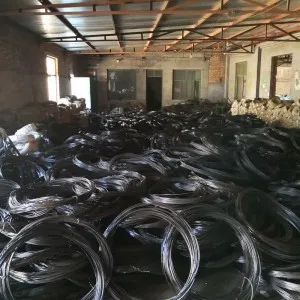Understanding AC Filter Screens Importance and Functionality
In the realm of air conditioning systems, the AC filter screen plays a crucial role in ensuring optimal performance and maintaining indoor air quality. This seemingly simple component is integral to the efficient operation of HVAC (Heating, Ventilation, and Air Conditioning) systems. Understanding the purpose and functionality of AC filter screens can help homeowners and building managers appreciate their significance and promote better maintenance practices.
What Is an AC Filter Screen?
An AC filter screen is a barrier designed to capture dust, dirt, pollen, pet hair, and other airborne particles before they can enter the air conditioning system. Typically made from fibrous materials, these filters come in various designs and efficiencies, with some capable of trapping microscopic particles that traditional filters might miss. Depending on the system and the environment, the types of filters used can vary—from basic fiberglass filters to more advanced HEPA (High-Efficiency Particulate Air) filters.
Why Are AC Filter Screens Important?
1. Improved Indoor Air Quality One of the primary functions of an AC filter screen is to enhance indoor air quality. By trapping harmful pollutants and allergens, filter screens ensure that the air circulated by the HVAC system is cleaner and healthier for occupants. This is particularly important for individuals with allergies, asthma, or other respiratory conditions.
2. Energy Efficiency A clean AC filter significantly contributes to the overall efficiency of an air conditioning system. When filters become clogged with dust and debris, the system has to work harder to draw air through the filter, which leads to increased energy consumption and higher utility bills. Regularly replacing or cleaning the filter can improve airflow and reduce energy costs.
ac filter screen

3. Preventing System Damage A dirty filter can cause various problems for an air conditioning system, including reduced airflow, overheating, and even mechanical failure. By maintaining a clean AC filter screen, homeowners and facility managers can extend the lifespan of their HVAC equipment and minimize repair costs.
4. Environmental Considerations Efficient HVAC systems not only benefit homeowners but also contribute to environmental sustainability. By using energy more efficiently, clean filters help reduce greenhouse gas emissions associated with energy production.
Maintenance Tips for AC Filter Screens
To maintain optimal performance, it's essential to regularly check and replace AC filter screens, typically every one to three months, depending on usage and environmental conditions. Here are some maintenance tips
- Inspect Monthly Regularly check the filter for dirt and debris. - Replace as Needed If the filter looks dirty or has become damaged, replace it promptly. - Consider Upgrading For better air quality, consider investing in a higher-efficiency filter.
In conclusion, AC filter screens are vital components of residential and commercial HVAC systems. Their role in maintaining indoor air quality, improving energy efficiency, and preventing potential system damage cannot be overstated. By understanding their importance and committing to regular maintenance, individuals can ensure a healthier and more efficient living environment.

















